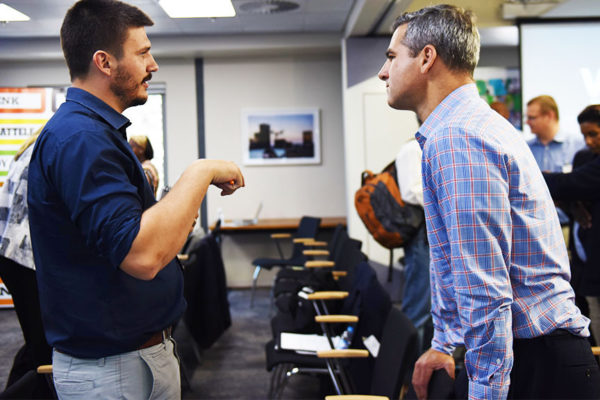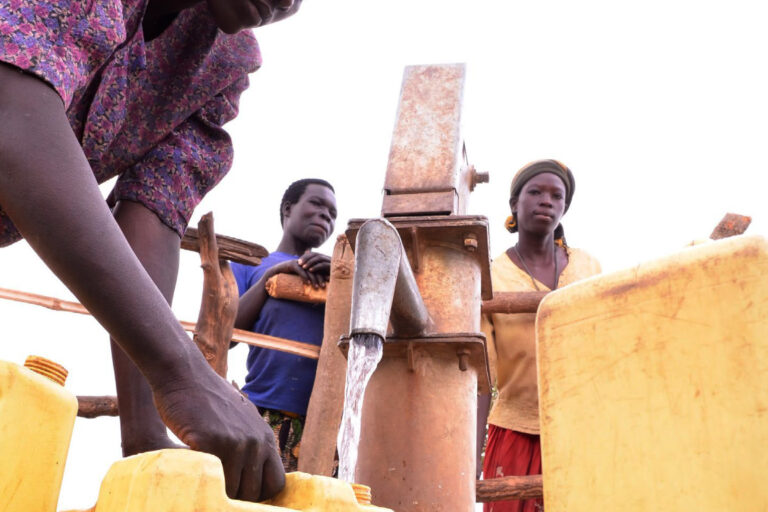
Using Big Data to Ensure Water Security
A groundbreaking effort to harness knowledge about transboundary aquifers in southern Africa kicks off in Johannesburg.
Since the 1990s, the innovation known as “big data” has been rapidly reshaping society. Broadly speaking, it refers to the use of computers to collect large amounts of information, analyze patterns and trends, and apply those lessons to improve performance. Its effects can be felt in the changing ways we shop, watch television and listen to music. But its applications are not confined to the consumer world.
A group of American and southern African governmental and private institutions recently held a launch event in Johannesburg, South Africa, to present a collaborative effort using big data to improve the governance of water resources that span political borders in southern Africa.
The Big Data Analytics and Transboundary Water Collaboration brings together the complementary expertise of the USAID Global Development Lab, the South African Department of Science and Technology, the Groundwater Management Institute of the Southern African Development Community, IBM Research Africa and the United States Geological Survey.
USAID Southern Africa Deputy Director Rebecca Krzywda noted at the meeting that water affects every aspect of the Mission’s work.
“As a development agency, we work in numerous sectors across the region,” Krzywda said. “But water is critical to everything we do. Without water, there can be no sustainable economic development.”

The agencies plan to accumulate large amounts of data about the region’s water and use the information to most efficiently manage its resources. Transboundary water governance in southern Africa is a critical element in the regional objectives of sustainable natural resource management, poverty eradication and policy harmonization. This work could help prevent water shortages and more effectively provide water by monitoring water levels of rivers, aquifers and dams in the region.
The South African Water Research Commission will manage, on behalf of the collaboration, four thematic research projects aimed at consolidating data and find innovative ways to use data for decision-making:
- Consolidation of data and application of big data tools to enhance national and transboundary data sets in Southern Africa that support decision-making for security of water resources.
- Imagining solutions for extracting further value from existing datasets on surface and groundwater resources in Southern Africa
- Localizing transboundary data sets in Southern Africa: A case study approach
- Groundwater secure transboundary systems.

The Sustainable Water Partnership (SWP), implemented by Winrock International and several partners, is providing technical coordination to the program. SWP’s Dr. Clara Bocchino is in charge of developing a communal platform to enable each of the participating agencies to improve sharing and learning by connecting stakeholders and partners through discussion forums and other platforms. Called a community of practice, it features a public LinkedIn platform and an internal SLACK channel (a cloud-based set of collaboration tools). The community of practice will also foster workshops and training opportunities.
This unique process enables the participating agencies to continue their individual work, Bocchino said, while focusing their strengths to broadly accumulate information and wield it effectively.
“There are different types of information, particularly when it comes to water in southern Africa, that might not be online and will require going to individual collectors and sorting through handwritten information, for instance on rainfall,” Bocchino said. “We plan to harness that information, put it through a specifically designed system that allows us to answer questions we have around groundwater, and use that information to support decisions.”
Related Projects

